We hear the words emotionally unavailable thrown around a lot in the world of dating, but what does it actually mean to be emotionally unavailable?
How do you know if you are dating an emotionally unavailable person or if you are struggling with emotional unavailability?
Is your partner always “fine”? Do they text or call often, then suddenly disappear for days, only to return as if nothing happened?
Are you the one always initiating emotional conversations, feeling like you are chasing after them and receiving only the bare minimum in return?
Or are you the emotionally unavailable partner displaying these signs of emotional unavailability?
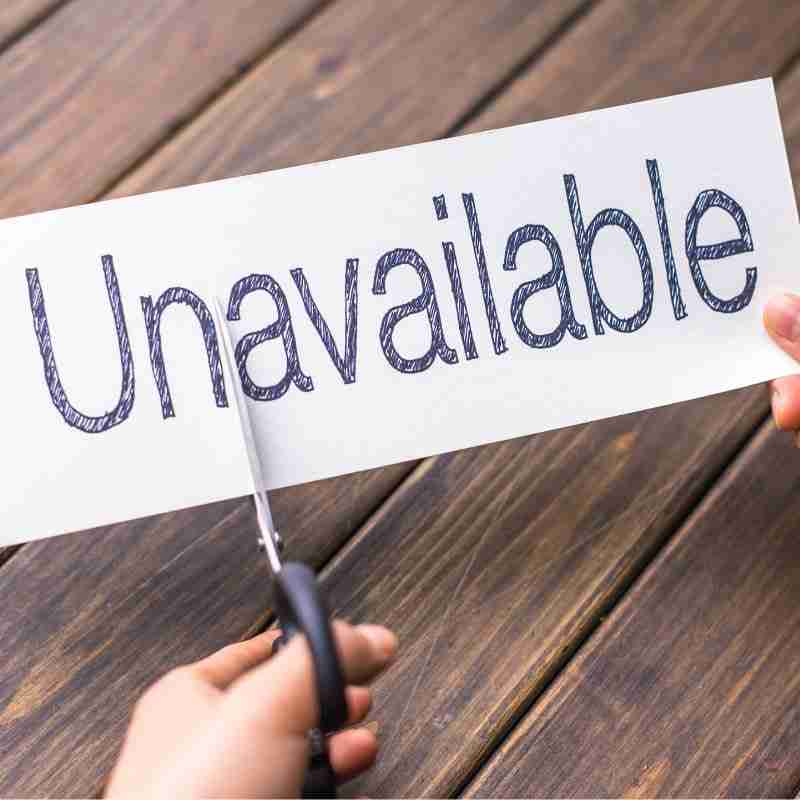
Emotional reactions in such individuals can manifest as extreme emotional outbursts followed by withdrawal, indicating difficulties in managing emotions.
Most people assume that being emotionally unavailable means someone isn’t interested in a committed relationship, but that’s not always the case.
Many emotionally unavailable people do crave emotional intimacy but struggle to form emotional bonds.
They may have attachment issues, fear vulnerability, or have unresolved past traumas that create emotional distance in their romantic relationships.
What is Emotional Availability?
Emotional availability refers to the ability to be present and receptive to one’s own emotions and the emotions of others.
It involves being open, vulnerable, and willing to engage in emotional conversations and connections.
Emotional availability is essential for building and maintaining relationships, as it allows individuals to form deep and meaningful connections with others.
This means to be emotionally available, they express their own feelings, listen to and validate the emotions of others, and navigate conflicts and challenges in a constructive and empathetic manner.
Signs of Emotional Unavailability
Engaging in mixed messages about feelings or future plans
Avoiding deeper conversations or serious commitments
Becoming emotionally distant when things start feeling too close
Struggling with own emotions and self-reflection
Showing patterns of attachment trauma and difficulty trusting others
Appearing self-absorbed or overly fiercely independent
Unable to express emotions in a healthy manner
Hesitant to make relationship work a priority
Why Are Some People Emotionally Unavailable?
Understanding how emotional unavailability develops requires looking at attachment theory.
Often, those who struggle with emotional availability have had experiences in life that made them wary of trusting others.
Childhood experiences, such as inconsistent caregivers, neglect, or overly critical family members, can shape attachment styles that impact relationship dynamics in adulthood.
Trauma from previous relationships can also cause someone to hesitate in forming a true connection.
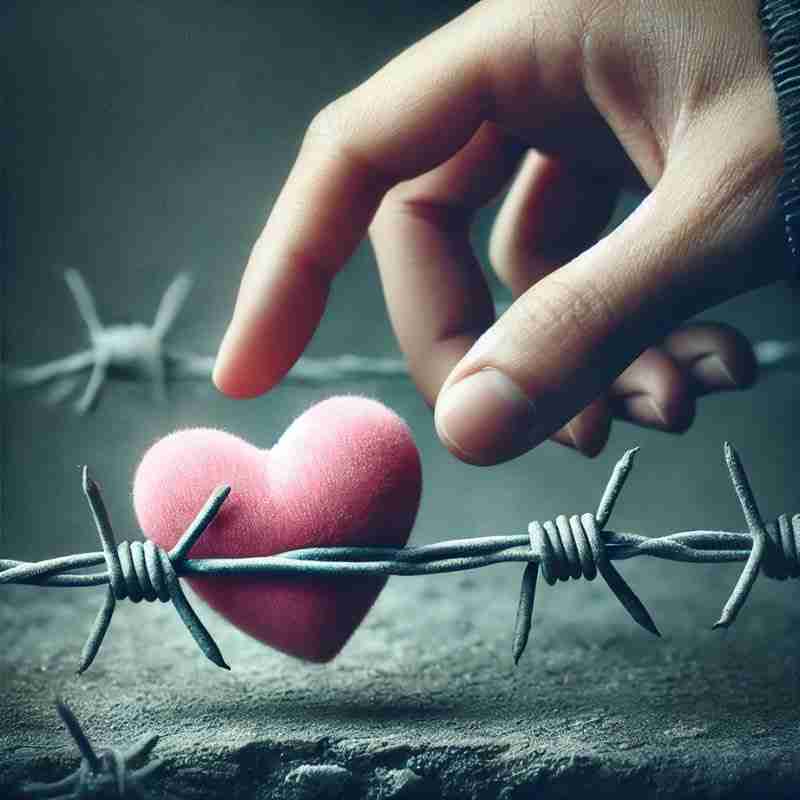
Some emotionally unavailable people fall into this pattern because they fear losing their independence, while others may not even realize their behaviors push others away.
They may avoid spending time on deeper conversations or dismiss the need for emotional bonds due to unresolved pain from their past.
In some cases, temporary circumstances like work stress, grief, or mental health struggles can contribute to emotional unavailability.
How Emotional Unavailability Affects Relationships
Being in a relationship with an emotionally unavailable partner can feel exhausting. You may feel like you’re doing all the relationship work, constantly trying to express emotions and build a healthy relationship, while they remain distant.
Over time, this imbalance can lead to hurt feelings, frustration, and even a loss of self-worth.
One of the most difficult aspects is receiving mixed messages—one moment they may seem fully engaged, and the next, they withdraw completely.
This inconsistency can leave you questioning your own needs and reality in the relationship. Emotionally unavailable people tend to avoid making clear future plans, keeping things vague to prevent getting too close.
It’s Not Your Fault–You Are Not the Problem
If you’ve been in a relationship with an emotionally unavailable person, you may have started questioning yourself, wondering what you did wrong or why you weren’t enough for them to open up.
But the truth is, their emotional unavailability is not a reflection of your worth.
It’s easy to blame yourself when someone withdraws or fails to meet your emotional needs, but their struggles with emotional intimacy are about them—not you.
You cannot force someone to be emotionally available, no matter how much you love them or how patient you are. Many emotionally unavailable people don’t even realize the impact their behavior has on others.
The most common mistake people make is assuming that if they were somehow “better,” their partner would change. This is simply not true.
You are not the reason they are emotionally unavailable, and you are not responsible for fixing them. Healing must come from within, and they must recognize their barriers to forming a healthy relationship.
Instead of internalizing their distance, focus on what is going on inside yourself and discover your own needs.
Ask yourself:
Are my emotional needs being met in this relationship?
Am I constantly making excuses for their behavior?
Do I feel emotionally fulfilled, or am I always giving more than I receive?
If you find yourself in a relationship where you are doing all the relationship work, it may be time to set boundaries, have a serious conversation, or even consider stepping away for the sake of your mental health.
You deserve a great relationship where your feelings are valued, your emotional needs are met, and your partner is willing to work on building emotional intimacy with you.
What If You Are the Emotionally Unavailable One?
It’s easy to recognize emotional unavailability in others, but what if you are the one who struggles with emotional intimacy without realizing it?
Here are some signs that you might be the emotionally unavailable person in your relationships:
You feel uncomfortable with deeper conversations and tend to change the subject.
You struggle to identify or share your own emotions, avoiding vulnerability.
You keep a distant or detached approach to romantic relationships to maintain control.
You frequently feel suffocated by emotional bonds and prefer surface-level interactions.
You experience anxiety or fear when someone tries to get too close.
You often prioritize independence over connection, seeing relationships as restrictive.
You have a history of leaving relationships when they start feeling too serious.
You rely on coping strategies like humor, sarcasm, or withdrawing instead of facing emotions.
If any of these resonate with you, it’s important to engage in self-reflection and consider exploring the underlying causes of your emotional unavailability.
Recognizing this in yourself is the first step to making meaningful changes.
Seeking professional support, such as a clinical psychologist, can help uncover past wounds, navigate attachment challenges, and build healthier relational patterns.
Building Emotional Availability
Building emotional availability requires a willingness to be vulnerable and open with oneself and others.
It involves developing self-awareness, recognizing and accepting one’s own emotions, and learning to communicate effectively. Here are some strategies for building emotional availability:
Practice self-reflection and self-awareness to better understand your own emotions and needs.
Engage in open and honest communication with others, sharing your thoughts and feelings in a clear and respectful manner.
Listen actively and empathetically to others, seeking to understand their perspectives and emotions.
Cultivate a growth mindset, recognizing that emotional availability is a skill that can be developed and strengthened over time.
Seek out supportive relationships and environments that encourage emotional openness and vulnerability.
Moving Forward: Healing and Growth
If you or your partner struggle with emotional unavailability, change is possible—but it requires effort, self-awareness, and sometimes professional support.
Seeking guidance from a clinical psychologist or choosing to obtain therapy can help identify underlying causes of emotional distance and provide coping strategies to build healthier connections.
Healthy relationships thrive on communication, trust, and mutual effort. If you’re with someone who is not capable of meeting you on a deeper level, recognize that you have the power to walk away.
You deserve a relationship where emotional vulnerability is welcomed, and where love is freely given—not something you have to chase.
By prioritizing your own emotions and well-being, you set the foundation for real emotional availability, whether that’s with your current partner or someone new who is ready and willing to meet you where you are.

Navigating Relationships with an Emotionally Unavailable Person
Navigating relationships with emotionally unavailable people can be challenging and draining.
Here are some strategies for coping with emotionally unavailable partners, friends, or family members:
Set clear boundaries and communicate your needs and expectations.
Seek therapy and support from others, such as friends or family, to help you cope with the emotional distance.
Practice self-care and prioritize your emotional well-being.
Consider avenues like couples therapy or individual counseling to address the emotional unavailability and work towards building a more emotionally available relationship.
Be patient and understanding, recognizing that emotional unavailability can be a deeply ingrained pattern that takes time and effort to change.
Seeking Professional Help When Feelings Are Overwhelming
Knowing when you need the help of a professional can be an effective way to address emotional unavailability and build emotional availability.
Here are some options for seeking professional help:
Individual therapy or counseling: Working with a therapist can help you develop self-awareness, recognize and accept your own emotions, and learn effective communication skills.
Couples therapy: Working with a couples therapist can help you and your partner develop emotional intimacy and build a more emotionally available relationship.
Support groups: Joining a support group can provide a safe and supportive environment for sharing your experiences and connecting with others who are navigating similar challenges.
Online resources: Utilizing online resources, such as articles, blogs, and online courses, can provide education and support for building emotional availability.
My Journey Through Emotional Unavailability
I had no idea I was emotionally unavailable. After my divorce, I thought I was ready to jump back in—I was single, fresh, and eager to start a new chapter. Like many, I made the common (but not necessarily healthy) mistake of dating for my “forever person” right away.
I didn’t know how to be single; I only knew how to be a wife. After 13 years of marriage, I craved the security of a relationship. I had so much love and passion to give—I didn’t realize I needed to give it to myself first.
Looking back, I laugh at those first few dates. The dating world was shocking, to say the least, but eventually, I met a few guys I clicked with. The problem?
I was ready to be exclusive by date two! It’s almost embarrassing to admit how quickly I was willing to “play house” without understanding my emotional state.
Therapy and self-help books gave me the wake-up call I needed: I was a mess. I wasn’t emotionally available for anyone—least of all myself.
A Few Years Into My Dating Journey
I finally reached a place of emotional stability, vulnerability, and openness. That’s when I wrote about my situationship with Gnome, a time when I was truly available—and got hurt because I ignored the red flags.
Then there was Leo. We had known each other for about ten years, running in similar circles. After reconnecting at an event, we started messaging, which quickly turned into hanging out. I was always attracted to him—his energy, his kindness, his looks.
He told me from the start that he was emotionally unavailable.
I shrugged it off. “Okay, cool. No big deal,” I thought.
WRONG.
It was a big deal. He told me who he was, and I refused to listen.
Recognizing a Situationship and Red Flags
Two months in, he was saying all the right things, texting me every day, and being intimate—when it worked for him. That was the catch. It was always on his terms. Deep down, I knew it was turning into a situationship, but I convinced myself it was okay.
Maybe I was emotionally unavailable, too.
That was a lie.
I had worked so damn hard to be vulnerable, to be emotionally open. And for the first time, I felt safe with someone. Leo was the first partner I truly felt at ease with. But that only made it worse when he reminded me—again—that he wasn’t emotionally available and never would be.
Still, I tried. “If you just open up, we could heal together,” I told him. But he didn’t want to hear it. He didn’t want what I had to offer.
His behavior was classic emotionally unavailable—hot and cold, plans only when convenient, no real commitment. One night, he even suggested hanging out on a work night because I’d be busy for the next week. The night came, and—big surprise—he canceled. It hurt, but I wasn’t shocked.
Then came the moment that made me pause.
We were joking about a zombie apocalypse—what we’d do, who we’d save. He casually mentioned that he only had supplies for his immediate family. I laughed and asked, “So you wouldn’t even take me in?”
His answer? A flat-out no.
The Signs Were There He Wouldn’t Save My Life in a Zombie Apocalypse
It was a silly, hypothetical conversation, but it hit me harder than expected. Even in a fictional, end-of-the-world scenario, I didn’t make the cut.
Those words stuck with me. It was as if the universe was screaming at me to pay attention.
A few days later, I finally admitted the truth to myself—I wasn’t okay with this. I sent Leo a long, heartfelt message, explaining how I felt.
I told him I had been lying to myself, pretending I was fine with something casual. The reality was, I wanted more. I needed more. I deserved more.
To my surprise, he agreed and told me I was absolutely right. He admitted that he had been distant. He knew he couldn’t give me what I wanted and that he had hoped I would accept things as they were.
That was all the confirmation I needed.
I wasn’t going to settle for half-love. Not anymore. I had worked too hard to become emotionally available, to be vulnerable, to be present.
And now, I was finally strong enough to walk away from someone who couldn’t meet me there.
Leo was a lesson—a painful but necessary one. And as much as it hurt, I knew that choosing myself was the most important thing I could do.
Building Bridges to Emotional Availability
Emotional unavailability is a complex issue that can deeply affect relationships, often leaving one partner feeling unseen, unheard, and emotionally drained.
Understanding the root causes—whether attachment wounds, past trauma, or fear of vulnerability—can help bring clarity to these challenging dynamics.
However, it is essential to recognize that change must come from within the emotionally unavailable person, not through their partner’s efforts.
If you find yourself in a relationship with someone who struggles with emotional availability, the best path forward is to set clear boundaries, prioritize your emotional needs, and decide what kind of connection truly fulfills you.
For those who recognize emotional unavailability within themselves, self-awareness and intentional healing—through therapy, self-reflection, and open communication—can help break down barriers to deeper intimacy.
Healthy relationships require mutual emotional investment, trust, and vulnerability.
While emotional unavailability can create roadblocks, understanding its roots and committing to personal growth can pave the way for stronger, more fulfilling connections.
Whether you’re seeking to build emotional bridges or choose to walk away from an unbalanced relationship or toxic person, your emotional well-being should always remain a priority.
Do you have experience with an emotionally unavailable person? Let us know in the comments below!


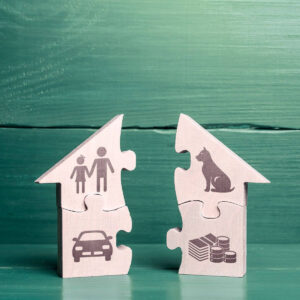



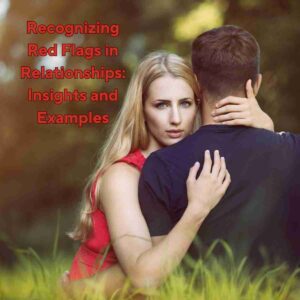







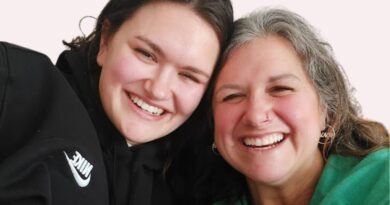

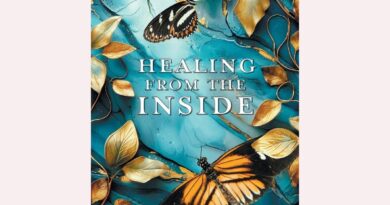

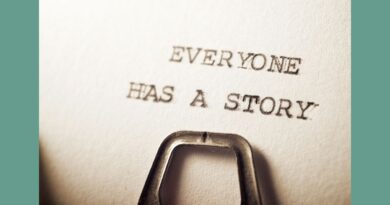










0 Comments